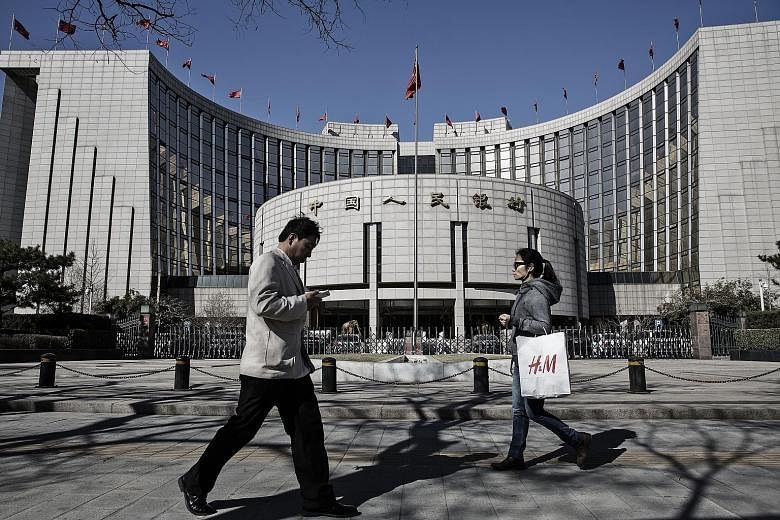BEIJING • The enthusiasm over last year's opening of China's Panda bond market has given way to frustration as regulatory delays have limited access to just a handful of foreign issuers.
Last year, China, for the first time, authorised public offerings of onshore yuan bonds by foreign entities expanding a funding channel previously limited to a pair of multilateral development agencies.
But the main beneficiaries of the move have turned out to be overseas-incorporated Chinese companies, while potential foreign issuers continue to wrestle with policy uncertainties and documentation hassles. As a result, foreign borrowers are renewing their interest in the offshore yuan, or Dim Sum, market, where yields are stabilising after a volatile start to the year.
"Foreign names are still interested in Panda bonds, but most of them don't have the time and the resources needed to go through all the process," said a banker with a foreign bank."They will have to look again at the Dim Sum market."
The unexpected advent of "fake Pandas" from Chinese issuers defeats the purpose of expanding the access of international issuers to the onshore bond market, and frustrate the ambitions of foreign banks looking to Panda bonds to unlock onshore underwriting business.
Months of fruitless meetings and documentation work are also leaving a sour taste.
In the onshore interbank market, supervised by the People's Bank of China, no Panda bonds have been launched since British Columbia made its high-profile debut in late January.
In the stock exchange market overseen by the China Securities Regulatory Commission (CSRC), overseas-incorporated Chinese companies have issued 11.5 billion yuan (S$2.4 million) of Panda bonds between late December and the end of March, according to China Cheng Xin International Credit Rating.
Of the total, about 43 per cent was from Chinese developers, including Hong-Kong listed Country Garden, Powerlong and Shimao Property. The livelier deal flow of the Panda bond market under the CSRC regime is a reflection of its more relaxed rules.
Capital controls are the other major obstacle to the development of Panda bonds. Many would-be issuers want to use cheap onshore funds to repay offshore debts, invest in offshore markets or swap into other currencies, but stringent scrutiny over the use of proceeds by Chinese regulators complicates the task. Others pointed out that regulators in different localities appear to have different approaches.
Regulators are aware of frustrations and are advising market participants to show patience.
"We also want to bring genuine foreign names into the market and we welcome foreign banks to bring in such issuers, but we need to work together with them to sort out issues like use of proceeds and adaptation of financials ,as there are no prior examples to follow," said a source close to the interbank regulators.
REUTERS

